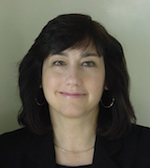
Author: Dan Shapiro, Ph.D.
ISBN: 9781611800173
Information:Trumpeter, 2013 | $16.95 US
After fifteen years of listening to ladies in cancer support group meetings tell stories about their spouses, I know this much is true.
Some partners are caregiver angels, endlessly patient and amazingly present for every single moment of the cancer journey. Unfortunately, others are guilty of unspeakably bad behavior: turned off by the physical changes in their partner’s body after surgery, unable to empathize with their wife’s emotional challenges as she moves through treatment, running scared as health crisis stress points build up. Over time, the breast cancer survivors in my network have shared so many different stories about their significant others – the good, the bad and the ugly – that I have more than once thought to myself, “lucky me.” As a single woman during cancer treatment, I only had to worry about taking care of myself. But after reading And In Health, I now know that there’s another possible scenario.
To begin, author Dan Shapiro has an unusual combination of credentials; he is a former Hodgkin lymphoma patient and clinical psychologist. He is also the husband of a breast cancer survivor. Shapiro has written a book that celebrates his unique perspective and varied skill set – as a cancer survivor, clinician and caregiver. His mission is to empower couples with practical strategies to help them survive the cancer experience. Both his personal and professional experiences inform And In Health. To his credit, Shapiro moves smoothly from sharing clinical research findings to telling moving and often humorous anecdotes about his wife’s journey following diagnosis. The book also integrates experiences from forty couples that Dr. Shapiro has interviewed.
Additionally, And In Health covers topics ranging from aspects of a couple’s emotional life to the finer points of successfully interacting with your medical team. Shapiro also tackles difficult issues rarely discussed in a doctor’s office or in print, like sexuality during and after treatment, along with end of life concerns. This book would be an amazing gift for a caregiver. But it could also find a home in the professional library of an oncology social worker.
But most importantly, fans of Shapiro’s cancer memoir, Mom’s Marijuana (Harmony Books, 2000) will be pleased to see that the author’s sense of humor has only improved with age, as seen in the following excerpt from And In Health, when Terry, the author’s wife, succumbs to a post-chemo craving:
“Cheeseburger,” she says.
Huh?
“Stop at McTrashalds.”
“Really?”
“I want a huge cheeseburger. Two maybe.”
“You just had chemo, aren’t you nauseous?”
“Yeah. So what. I want a cheeseburger.”
Like many of the women I know, Terry is extremely conscious of her weight. We try to eat relatively healthy food and particularly avoid fast food. We haven’t been to a McTrashalds in years.
“Light’s green,” she points.
We drive up Campbell Avenue toward Fort Lowell where a large McTrashalds awaits. I expect her to change her mind. “You know the chemo’s going to kick in later, you’re going to feel worse. There’s a salad place just over on—“
“Don’t miss the turn. Don’t turn too early! You’re going to miss the turn,” she says. I pull into the drive-through. Terry leans over and surveys the menu.
When the speaker chokes awake and a disembodied voice asks for our order, Terry is quick: “Give me a double cheeseburger, large fries, large diet Coke, and chocolate shake.” Then she looks at me. “You want anything?
Two pork pops, a beef swirl, meat on a stick, and a house-sized steak.
“Uh, I guess a little hamburger.”
“He’ll take the double-cheeseburger,” she says loudly, in case the microphone is underwater. Then she says softly, “Look, if I’m putting all these toxins that I hate into my body, my liver won’t care if I add a few more that I love, just for good measure.”
This logic makes no sense. Hell, I’ve been working for years with an integrative medicine program that seeks to combine the best of conventional and alternative medicine. Diet is one of the primary things we seek to change. And she knows all of this; she’s been a nutrition expert for years. And, truth be told, I’m a little nervous that our car might be spotted in the drive-through lane by one of my yoga-guru-diet self-actualized colleagues.
“Quit looking like I burned down your ashram and pay the girl,” Terry says.
I pay the girl. In exchange, the girl hands me a large bag of toxic treats and leans over with Terry’s shake, using both hands to deliver it into the Odyssey. The cup won’t fit in any of our cup holders because it’s large enough to have a diving board. We finally pull out and I’m relieved because at least now, as I prepare to merge into the traffic, I can pretend that we got lost if we’re spotted.
Now we’re out on the road, and happy eating sounds emanate from Terry’s rough location. “I’ve worried about this stuff my whole adult life and look at me. Breast cancer. So every now and then, we’re visiting the dark (muffled)…oh, this is good,” she says, as wonderful, factory-produced smells fill the inside of the vehicle and a bag of French fries is balanced on the overturned purple sandbox bucket I brought in case she got nauseous.
I had protests. I wanted her to do everything she could to fight the cancer, and diet was part of that. But she needed to enjoy her body as it was changing, and perhaps not speaking up for once was the smartest thing I could have done…